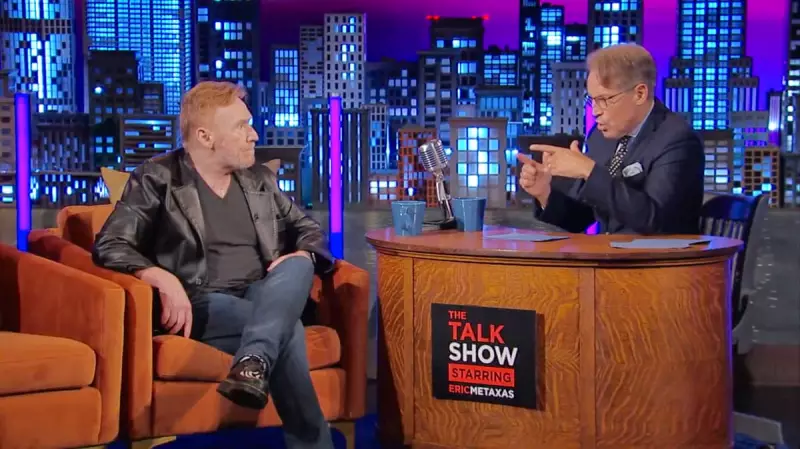
In an unprecedented move that blurs the lines between politics and entertainment, the Conservative Party is launching its own late-night style talk show aimed at reshaping political communication. 'The Late Debate,' set to premiere next month, represents one of the most ambitious media ventures ever undertaken by a British political party.
A New Stage for Political Messaging
Hosted by charismatic backbencher Sebastian Bloom, the programme will feature a mix of political interviews, celebrity guests, and musical performances. The format deliberately mirrors popular entertainment shows, complete with a live studio audience and the signature desk-and-sofa setup familiar to late-night viewers.
Conservative strategists describe the venture as an innovative way to bypass traditional media filters and connect directly with voters in a more relaxed setting. The show will be distributed through the party's digital channels and potentially through broadcast partnerships.
Blurring Political Boundaries
The announcement has sparked debate about the evolving nature of political communication. Critics argue the move represents a further Americanisation of British politics, while supporters see it as a necessary adaptation to changing media consumption habits.
'Politics is changing, and how we communicate needs to change with it,' a party spokesperson stated. 'This isn't about replacing serious debate - it's about finding new ways to engage people who might not watch traditional political programming.'
Production and Content Strategy
The show will be recorded in a central London studio with professional production values matching broadcast standards. Content will mix serious political discussion with lighter segments, including:
- Extended interviews with senior government figures
- Cross-party discussions on key policy issues
- Entertainment and sports personalities discussing their political views
- Musical performances and comedy segments
- Audience Q&A sessions
Media analysts suggest the move reflects growing frustration among political parties with traditional broadcast interviews and their increasing turn toward controlled communication channels.
Potential Impact and Reception
The success of 'The Late Debate' could signal a significant shift in how political parties approach voter engagement. If successful, other parties may feel pressured to develop similar entertainment-focused content.
However, questions remain about whether voters will respond positively to what some may perceive as a polished propaganda exercise. The show's ability to generate genuine engagement rather than simply preaching to the converted will be crucial to its impact.
As one media commentator noted, 'This either represents a brilliant innovation in political communication or a worrying further step toward the entertainment-driven politics many have warned about. The audience will ultimately decide.'






